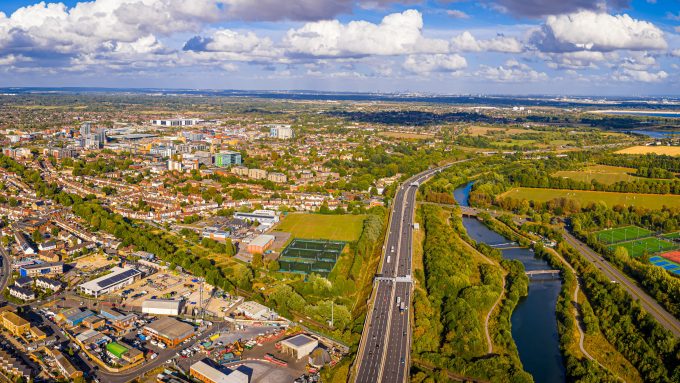
Data Science fellowships for local government

What are our data science fellowships?
The Catapult’s latest data science fellowships are at various stages of completion and we are starting to reflect on what has worked, and where we can do more to help Local Authorities on a path to better use data by attracting and retaining the data science and engineering talent needed to work on the technically challenging, messy and potentially high impact projects that support the delivery of local services.
Our data science fellowships programme aims to:
- Bring new perspectives, datasets and analytical methodologies to a problem space
- Upskill existing technical teams and stakeholders
- Trial data science – subject matter expert collaboration models
- Leave behind analytical capability in problem domain
- Create impactful narrative to build the business case within the council for ongoing problem-driven data science and analytical solutions
This cohort’s fellows have looked at projects on road maintenance in Hertfordshire, rental arrears in Camden, all-age social isolation in Buckinghamshire, and we are just starting out our data science fellowships focused on understanding how to support just-about-managing residents in Essex.
Hiring data scientists for local government challenges
The demand for data science skills, growing by 231% in the 5 years up until 2019, still comes mostly from the finance, professional services and tech sectors – and although there are more and more roles for data scientists in government, local government has struggled to attract and retain data science talent.
In selecting and supporting our second round of data science fellows we have 3 tips for those looking to recruit data scientists in this space:
- Be clear about the less well-defined nature of data science problems with candidates – but play to strengths around social impact. Impact is a known key driver for talent moving into the public sector, but it’s important to be credible and direct in describing this and the potential downsides – when compared to roles at data-rich, product-focused organisations, data science challenges are likely to be messier, but this can make the wins more rewarding.
- Work hard to unblock issues with technical setup that result in frustrating technical workflows. Data scientists need to be empowered to use best practise tools. Councils need to be cautious due to security and governance concerns, but there are relatively simple ways of setting up safe, isolated, sandpits. Again, being upfront about the challenges specific to local authorities with candidates is key, and there are examples of councils who have reached effective compromises here where security and privacy are absolutely a priority, but where data scientists are technically empowered.
- Look for data scientists who prioritise collaboration, and enjoy doing data engineering as well as building models. Know that the work surrounding model building is something needed in the vast majority of data science roles – with 80% of the average data science project focused on navigating data access and data engineering rather than model building. Unless we want automation that lacks context, this part of an applied project is critical as it builds an understanding of the data generating process and should be taken seriously.
We have found that the competency framework shown here is a great starting point for finding a candidate that will enjoy the type of data problems that councils can provide, and help selection panels find candidates who will make the most valuable contributions.
Taking a problem-centred, multidisciplinary approach
At Connected Places Catapult, we believe that taking a problem-centric view on data science projects, carefully isolating a well-defined data science challenge that is connected to a theory of change, can be the hardest but critically important part of an applied data science project. This is particularly true in the messy world of data about services that ultimately involve lots of people. Those people might be residents and risk of rental arrears, or the housing officers supporting them that themselves need to be able to understand why people are at risk so that they can pull in the most helpful support. Or they might be the council and provider teams responsible for interventions that range from community-led support groups, to libraries, to education providers, to GP surgeries that might be deployed to support those at risk of social isolation. They could be stakeholders at the Department for Transport looking to understand what funding councils need to continue to provide safe roads that are value for money in the long term.
Successes and challenges so far
The successes of the data science fellowships so far have been rooted in the multidisciplinary support we have provided to fellows and their sponsoring councils. We will update this blog to link to specific project examples as our cohort of fellows continues to deliver for councils. We will make sure to reflect on challenges faced, too.
Please take a look at the recent case studies of this data science fellows programme, for example the Camden Council case study highlights the benefits of combining a human-centred design approach with data engineering expertise – here understanding what housing officers need from data to best support them to direct residents to the services they need. This has been critical to framing the core data science challenge of value and to navigating a complex domain where very careful, iterative scoping of the problem is required so that an appropriate, ethical and information-governance conscious data solution is enabled.
u003cemu003e“The team at Connected Places Catapult were all very professional, knowledgeable and a pleasure to work with. The consequence scanning workshop really engaged our busy neighbourhood officers who took part and the data fellow really benefited from CPC’s data science expertise.”u003c/emu003eu003cstrongu003eCamden Councilu003c/strongu003e
u003cemu003e“Working with the Connected Places Catapult team and Buckinghamshire County Council has given me the opportunity to undertake a research project that has been both challenging and rewarding, and one that I feel will have significant social impact.”u003c/emu003eu003cstrongu003eFellow, Buckinghamshire County Councilu003c/strongu003e





